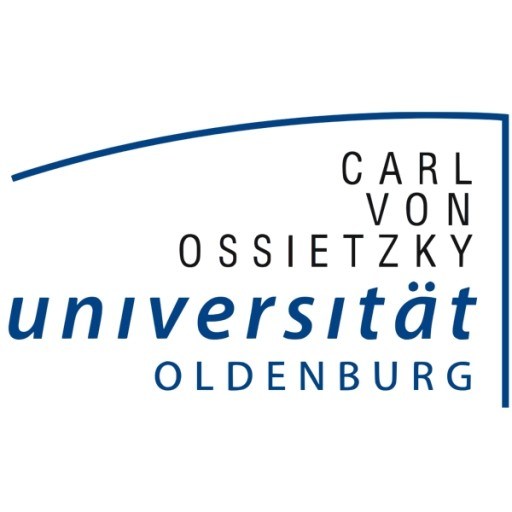The Bachelor's degree program in Microbiology at the University of Oldenburg offers students a comprehensive foundation in the biological sciences, focusing on the structure, function, and diversity of microorganisms. This program is designed to equip students with the essential theoretical knowledge and practical skills needed to understand the roles of bacteria, viruses, fungi, and protozoa in various biological, environmental, and medical contexts. Throughout the course of study, students will explore topics such as microbial genetics, physiology, ecology, and the interactions between microorganisms and their environments. The curriculum emphasizes laboratory work and research projects, enabling students to develop practical skills in microbiological techniques, including culturing, microscopy, molecular biology, and bioinformatics.
Moreover, the program addresses contemporary issues such as antibiotic resistance, biotechnological applications of microorganisms, and the role of microbes in biotechnology and industry. Students are encouraged to acquire interdisciplinary knowledge by integrating principles from chemistry, physics, and computer science, fostering a holistic understanding of microbiological processes. The program also emphasizes research-based learning, with opportunities for students to engage in ongoing research projects within the university's laboratories, supervised by experienced faculty members.
Graduates of this program will be prepared for careers in research institutions, healthcare, pharmaceutical industries, environmental consulting, and biotechnology companies. Furthermore, the program provides a solid foundation for students interested in pursuing master's and doctoral degrees in microbiology or related fields. The University of Oldenburg’s Microbiology program aims to cultivate critical thinking, problem-solving abilities, and scientific communication skills to prepare students for the challenges and opportunities in the rapidly evolving field of microbiology. With a focus on practical application and innovative research, this program offers an excellent pathway for students passionate about understanding the microscopic world and contributing to advancements in health, industry, and environmental sustainability.
Educational organisation
As students progress through the course, they collect a total of 120 credit points (CP). The course begins with the completion of two modules; these serve to give students a common grounding in the relevant theory and also train them in standard scientific communication. In addition, a pair of main modules teaches students practical scientific skills. Each module is worth 12 CP. Three modules (profile modules) are studied which cover current applications of microbiology. These are valued at six CP each.Students will then undertake two modules of independent scientific research projects. 12 credit points are awarded per project. The programme is then concluded with a Master's project and thesis, valued at 30 CP.
The Microbiology Course consists of the following modules:
- Microbial Physiology and Diversity (12 CP)
- Molecular Mechanisms and Interactions (12 CP)
- Main Modules (24 CP)
- Profile Modules (18 CP)
- Research Projects (24 CP)
- Master's thesis (30 CP)
The overview can be found at:
http://www.pmbio.icbm.de/mamibi/program_overview.html
Study abroad unit(s)
Students are encouraged to perform part of their studies at a foreign laboratory. However, this is not obligatory.Internships
NoneForms of assessment
Written or oral exams after the lecture period, controlled lab reports, written thesis to be defendedCourse objectives
Many of our graduates have the opportunity to obtain PhD positions at the Institute for Marine Chemistry and Biology at the University of Oldenburg, or in other research institutes nearby. In addition, a wide range of attractive employment fields are available for microbiologists.Our graduates have excellent opportunities in the biotechnological, chemical and food industries, as well as prospects in environmental protection, e.g. wastewater treatment and bioremediation. Microbiological and molecular techniques are also applied in agriculture in order to evaluate the quality and microflora of soils, and to detect potential pests. A wide range of options are available to the microbiology graduate. Due to the rapid development in molecular biology, job opportunities are increasing every day.
Language requirements
Applicants must provide proof of their English skills: TOEFL 550 (paper-based), 213 (computer-based), 79 (internet-based), IELTS 6.5, CEFR B2, or equivalent. German students should have earned 11 points on average during the last two years at secondary level II or an equivalent qualification.Academic requirements
Bachelor's degree (or equivalent) in biology, life sciences, microbiology or equivalentEnrolment fees
Approx. 280 EUR per semesterThe fee includes a semester ticket covering public transport in the Oldenburg area.
Costs of living
Approx. 600 EUR per month to cover personal expensesJob opportunities
Student assistant positions are available.Funding opportunities within the university
Oldenburg University has become the first university in Lower Saxony to introduce a scholarship programme for international students to cover tuition fees. Students can apply for the scholarship from the second semester onwards and must demonstrate regular study activity and the appropriate examination results. Applicants must be on track within the standard period of study (plus a maximum of four semesters). The amount of money granted with each scholarship is equal to the amount of tuition fees due.Scholarship for foreign students - Oldenburger Modell (STOM)
Starting in the second semester, foreign students (non-EU) can apply for a performance-based grant of 500 EUR to cover student fees. Students need to fulfil 75% of the curriculum.
http://www.iso.uni-oldenburg.de/en/60602.html
Arrival support
The International Student Office offers an orientation week to new students providing information about studying and living in Oldenburg, residence permits, etc. The programme includes tours of the university and the city of Oldenburg as well as cultural activities. Tutors - advanced foreign and German students - give guidance and support on academic and social matters. Further information: http://www.uni-oldenburg.de/en/isoServices and support for international students
Intensive study guidance counselling is provided by professors and lecturers.There are special campus activities for international students.
Accommodation
Furnished accommodation is available at a cost of 150 to 250 EUR per month (halls of residence or private).If you want to come to Oldenburg from abroad, there is now less need to worry about accommodation or other organisational matters. The Studentenwerk Oldenburg offers international students a service package for 964 EUR, which includes accommodation for six months and other services that should help you get started. Furthermore, a counselling service is available to get you safely through your first weeks and months in Oldenburg.
For further information and application form, please check:
http://www.studentenwerk-oldenburg.de/internationale-studierende.html









